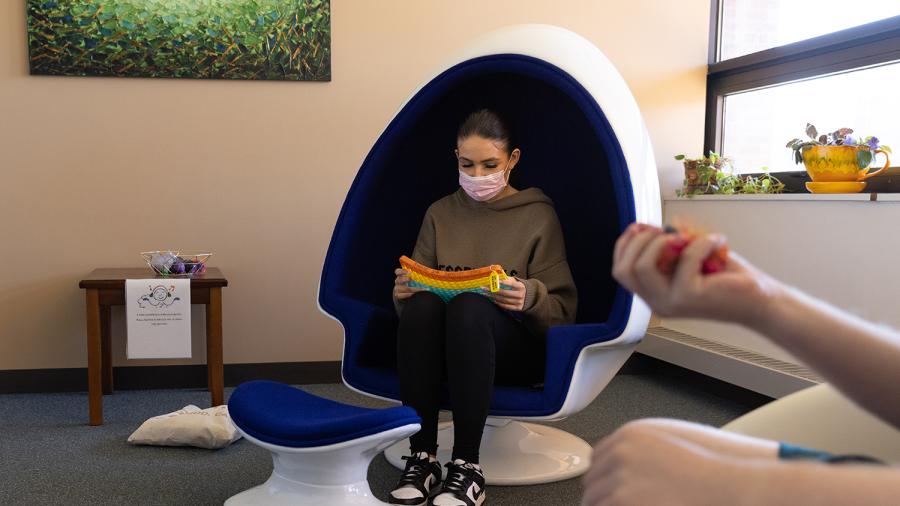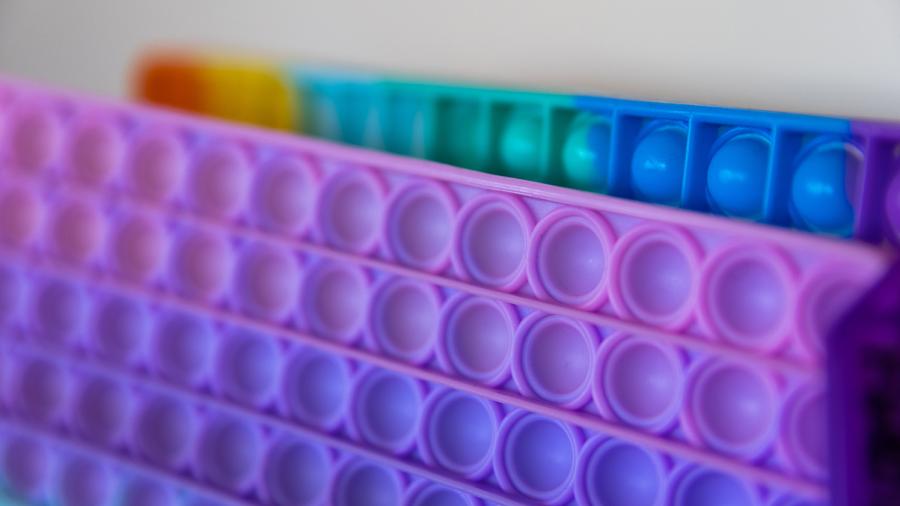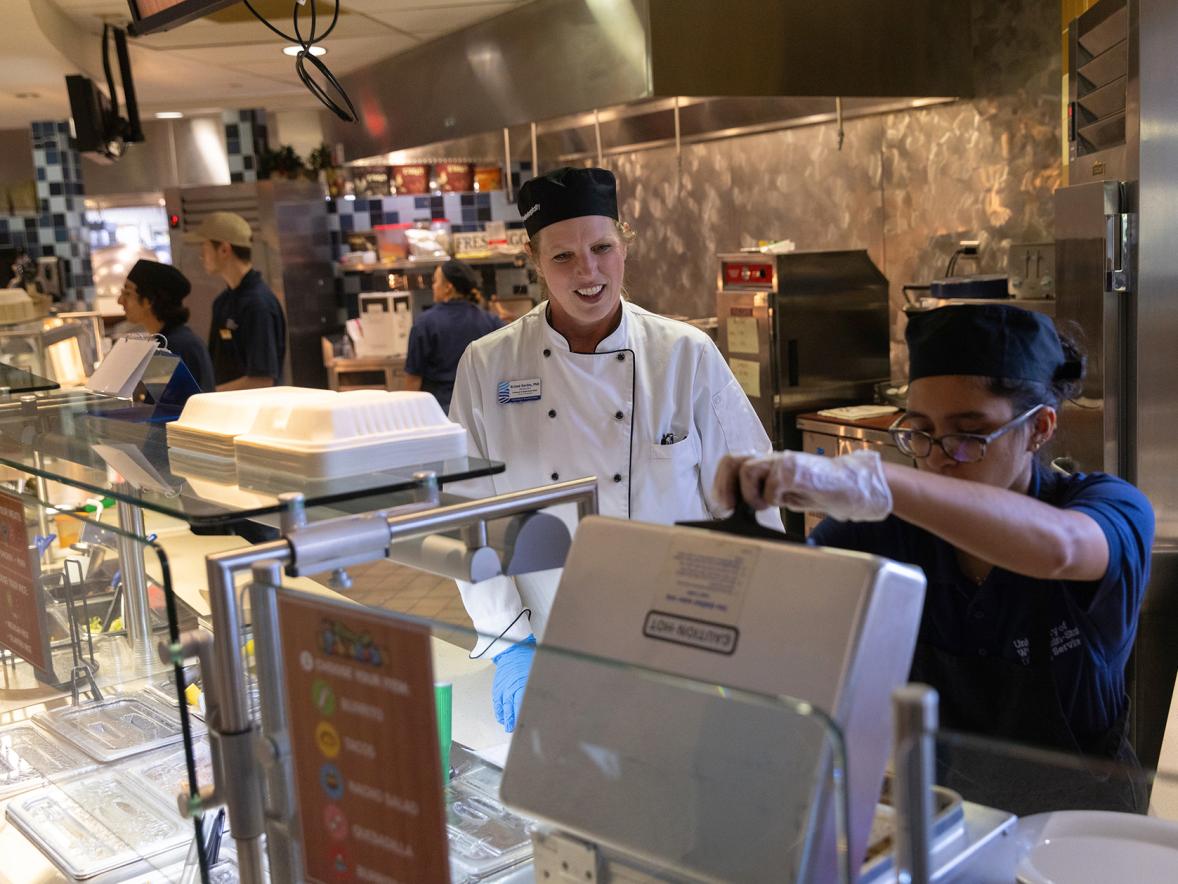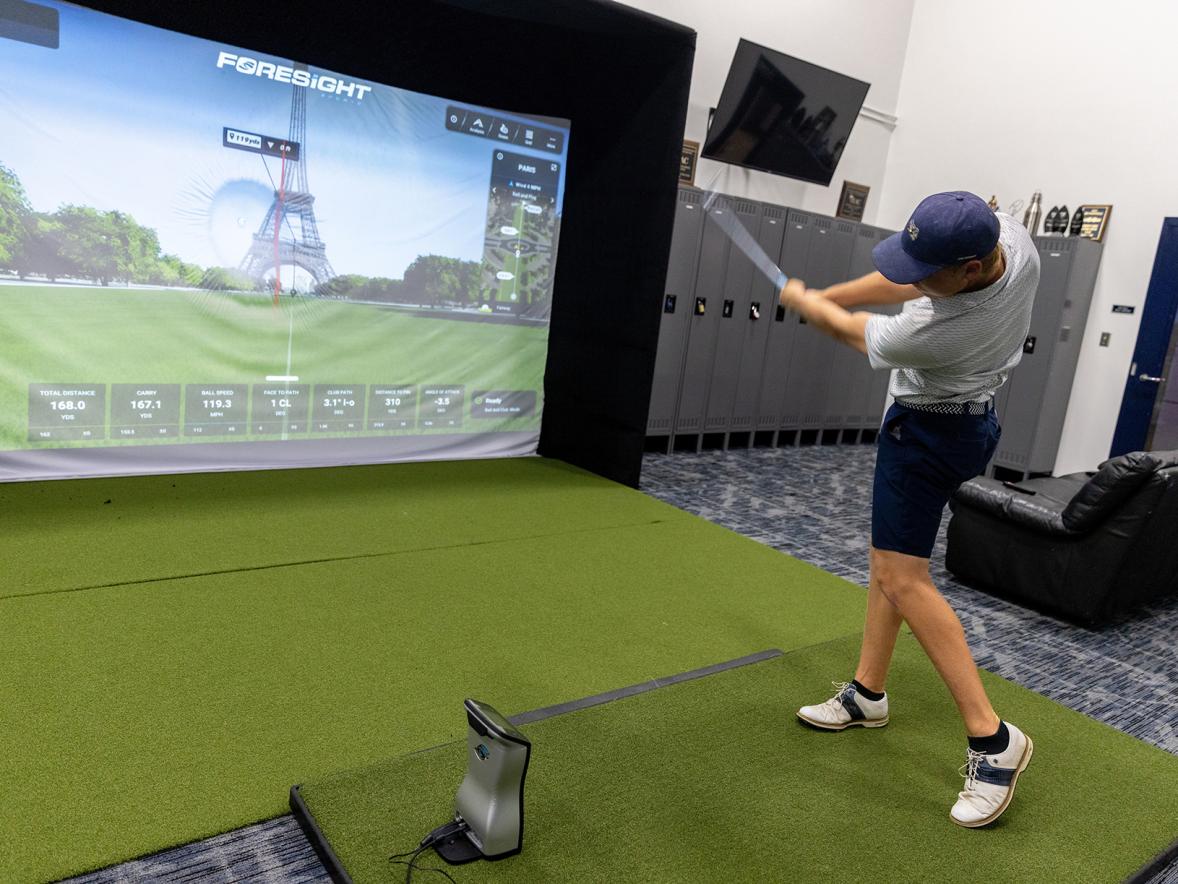Cocoon-like, noise-diffusing chairs, a futuristic-shaped rocking chair and textured 3D art are all designed to stimulate the senses in the new University of Wisconsin-Stout Sensory Space.
The space is in room 218 of the University Library.
“The Sensory Space can provide a nonthreatening environment for students to experience a range of sensory stimuli and allow the individual to reduce stress and relax,” said Disability Services Director Ann Murphy. “Multisensory environments are spaces that allow users to experience different variations of sensory input and have some control over the input they receive.
“The Sensory Space is a small lounge that provides space for students to decompress, relax, meditate and unplug. This space is one of UW-Stout’s efforts to address the needs of students who may be feeling overwhelmed and needing a unique alternative space to relax,” Murphy said.

The lounge area, which opened in September, also offers a white noise device with multiple sounds and a colored light and shape projector. Fidget devices are available for visitors.
Stout Student Senate President Devin Dumke is proud of the space, which the Stout Student Association’s Equity, Diversity and Inclusion Council, Disability Services and the library helped create and fund.
“This is one of many reasons I’m proud to be a Blue Devil and another example of our university looking out for its students,” said Dumke, a senior computer and electrical engineering major from Florence. “We’re at the forefront of accessibility for students.
“I’m really happy with the space that we have created and the options we have for students to explore different sights, sounds and feelings,” Dumke said. “We can continue to improve the space, but we have already created a fantastic resource for students that helps make our campus more accessible.”

SSA Senator of Student Services Anri Bien-Aime, a senior majoring in business administration from Springfield Gardens, N.Y., said the space is very important because there are very few areas on campus where students can go to de-stress and regain their focus.
“In an environment where one’s brain is constantly processing and intaking what’s happening around them, having this space can help explore those different senses and utilize them better in real-life situations,” Bien-Aime said. “As a student dealing daily with homework, tests, extracurricular activities, etc., putting tons of stress and overloading our brains, a Sensory Space can give us that chance to momentarily forget that daily pressure and practice self-care that many of us preach but don’t act on. Stout offering this space is a huge step forward, not only for students with disabilities but the general student population who could use a relaxation zone.”
Bien-Aime is aware of other universities, such as Minnesota-Duluth and Stony Brook in New York, that offer sensory-friendly spaces.
Students who identify with anxiety, depression, autism, spectrum disorders and other disabilities need quiet spaces with limited stimulus on campus, Murphy said, while noting the space is open to anyone.
The library is a great location because of its extended hours and other reasons, Murphy said.
“It is a quiet location with the added benefit of proximity to the all-gender restroom. The Disability Services office is also located in the library, so it gives us the opportunity to talk about the space to students, show where it is located and discuss its purpose,” Murphy said.
The library monitors use of the room, and Disability Services provides the fidgeting devices.







